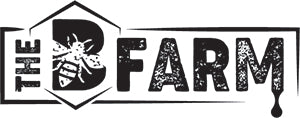Beekeeping is a productive and rewarding hobby, but it requires extensive knowledge to even start. Although you’ll definitely learn more as you move throughout your journey as a beekeeper, knowing some important principles and practices up front is the best way to start right. Dive into the most common beekeeping mistakes all beginners make to learn how to avoid them.
Opening the Hive Too Frequently
Opening the hive too frequently is never a good idea. As a new beekeeper, you probably want to see what’s happening inside, but it’s unnecessary. Bees know what they’re doing and prefer to do it alone, so observe from the outside. Conducting a hive inspection every 7–10 days is important for a new colony, but you shouldn’t be checking in on them more frequently than this. Too many intrusions disrupt their work.
Not Using a Smoker
A smoker is an effective way to calm a colony and keep bees from attacking you. Because bees are protective of their hive, they’ll become defensive when you try to enter. The smoke weakens their alarmed behavior by masking chemical signals.
Despite popular belief, the smoke doesn’t harm your bees. It’s simply an incredibly useful tool to take advantage of, but many new beekeepers don’t see the value in using it. When you start out, use your smoker as necessary to protect yourself.
Starting With Only One Colony
You may think one colony is enough or all you can handle, but beekeepers with more than one colony are often more successful. If you have one, you put all your eggs in one basket. On the other hand, starting multiple hives is like an insurance plan—you can use resources from your strongest hive to help your weakest one. Overall, you’ll have the best chance of helping more bees by starting with more than one hive.
Harvesting Too Much Honey
Honey is arguably the most exciting and rewarding part of beekeeping, but you must consider the bigger picture. Bees make honey for themselves to survive the winter when nectar is scarce. They often make too much, which you can harvest. However, you shouldn’t expect to harvest honey during your first year as a beekeeper—ensure your bees have enough food to get them through the winter, or they may starve.
Forgetting Protective Gear
Protective gear is a must for beekeepers. Although you may not use a full-coverage suit every time you approach the hive, be sure there aren’t any gaps for bees to enter your clothing. Bees are more likely to sting you when trapped between your skin and clothes. Forgetting your protective gear only hurts you, so suit up before approaching your apiary for inspections.
After learning the common beekeeping mistakes all beginners make, you can avoid a few mishaps early in your journey. If you’re looking for VSH queen bees for sale to start your new adventure, visit The B Farm online. Beekeeping is one of the best ways to help the environment and boost the local bee population, and you’ll also get to indulge in delicious fresh honey!
